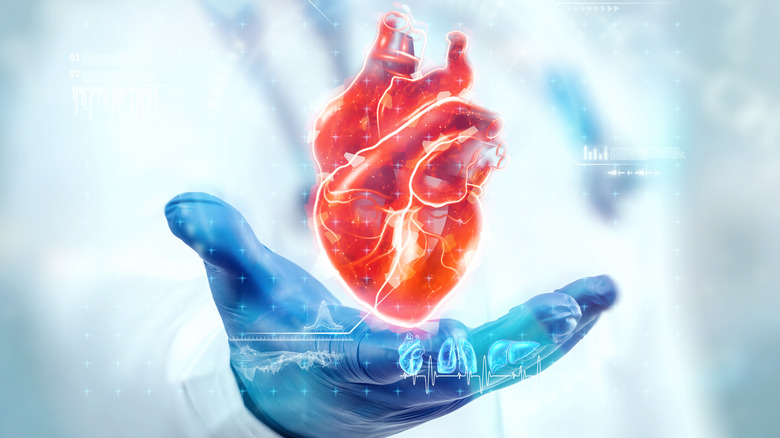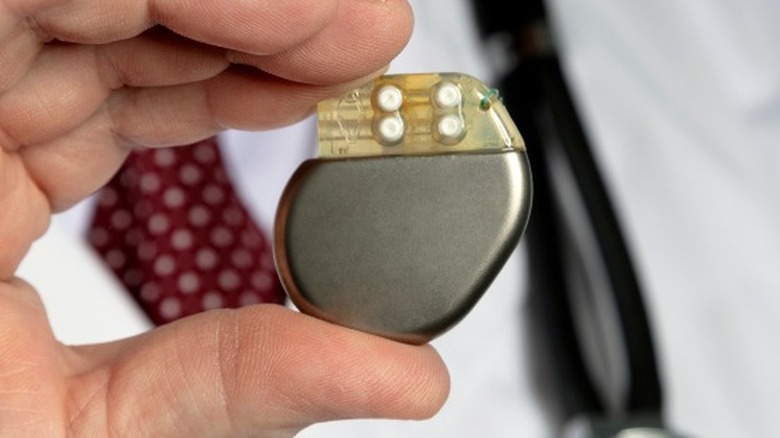The Troubling Way Tech Devices Can Interfere With Heart Implants
If you own certain tech products and also have a heart implant, you may want to take some precautions. According to HealthDay News, a new Swiss study suggests that certain portable tech products may interfere with the ability of pacemakers and defibrillators to maintain your heart's normal rhythm.
"These devices are designed that they can be deactivated by a strong enough magnetic field from outside of the body," lead researcher Corentin Fery, told the publication. Examples of devices that the study found could cause adverse effects include the Apple AirPods Pro and Microsoft Surface Pen. According to Fery, the impact on those with a pacemaker is less severe — the magnetic interference caused by the technical device could cause the pacemaker to shift from the programmed pace mode to the device's default fixed pace mode. However, a defibrillator implant could completely shut down if impacted by the interference, which means it would not function if the patient developed an irregular heartbeat.
While these findings are concerning, some health experts state that the likelihood of a serious incident is low, and no real-world adverse events have been reported yet (via HealthDay News).
How pacemakers and defibrillators function
Pacemakers and defibrillators are similar in that they both adjust an abnormal heart rhythm, but they function somewhat differently. If you have an arrhythmia, meaning your heart beats too quickly or too slowly, a cardiologist may suggest a pacemaker. A pacemaker helps to correct an abnormal heartbeat by sending electrical pulses to the heart, instructing it to beat at a normal rate (via National Library of Medicine). On the other hand, an implanted cardio defibrillator (ICD) monitors your heart and sends shocks to the heart muscle when it detects serious rhythmic interruptions. An ICD can help prevent sudden cardiac arrest in people who have life-threatening forms of arrhythmia.
Pacemakers are made up of 2 main parts: a generator that stores the battery and information about the heartbeat's regulation, and leads, which are wires connecting the generator to the heart. ICDs consist of a generator that sends powerful electrical charges to the heart, as well as a device that regulates the generator. Electrodes placed on the heart sense arrhythmias and send shocks to the heart. ICDs can deliver improved quality of life; however, the surgery can be risky (via Columbia University Irving Medical Center).
More research is needed on how portable tech products interact with heart implants. However, if you have a pacemaker or ICD, health experts advise that you keep handheld devices at least 6 inches away from your chest (per HealthDay News).


